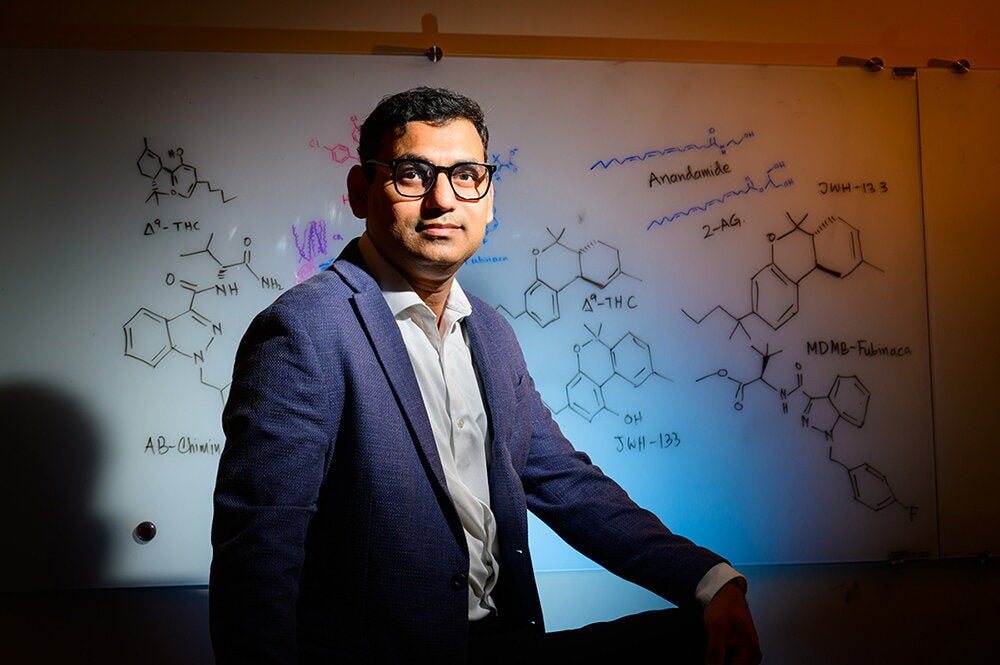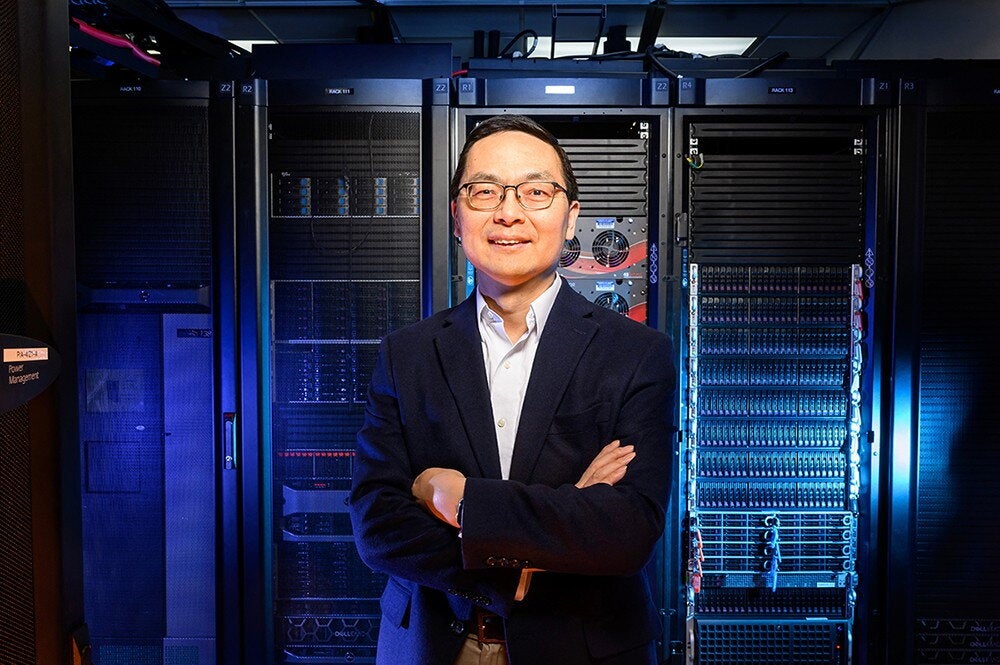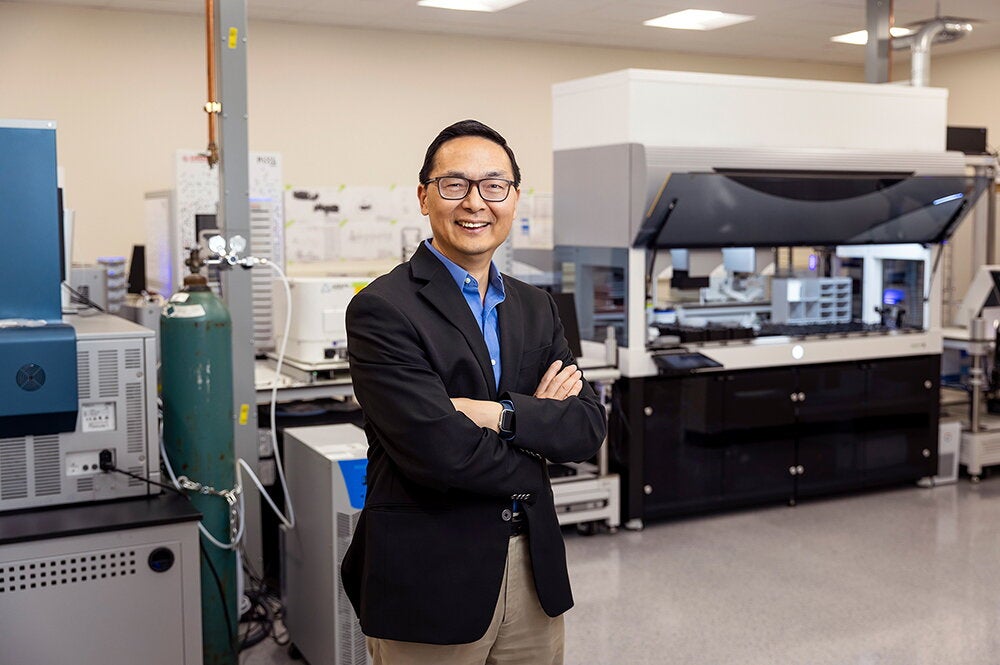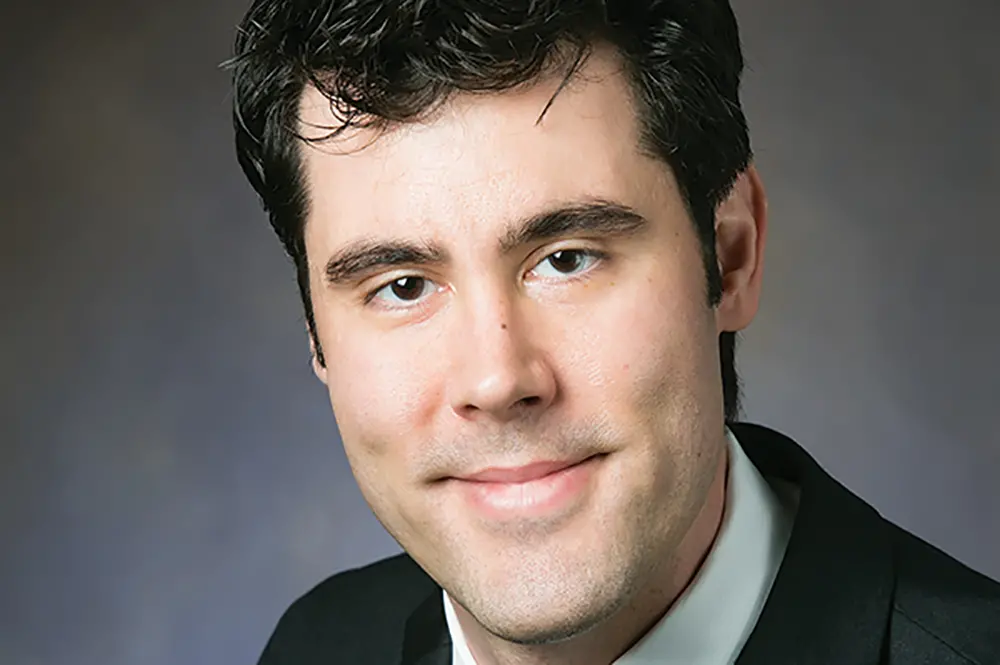
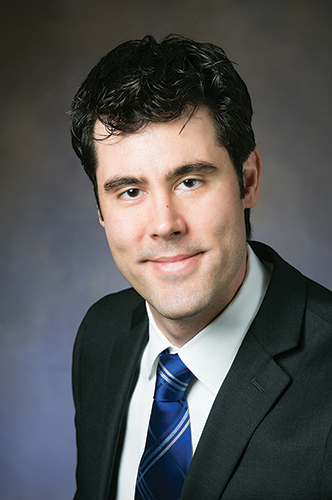
The Department of Energy has selected 73 scientists from across the nation, including University of Illinois chemical and biomolecular engineering professor David Flaherty, to receive significant funding for research as part of its Early Career Research Program. The effort, now in its 10th year, is designed to bolster the nation’s scientific workforce by providing support to exceptional researchers during the crucial early career years, when many scientists do their most formative work.
Flaherty’s research project is entitled, “The Role of Cooperative Interactions Among Surfaces, Solvents, and Reactive Intermediates on Catalysis at Liquid-Solid Interfaces.” His lab focuses on the overlapping topics of catalysis, surface science, and materials synthesis.
"Supporting our nation’s most talented and creative researchers in their early career years is crucial to building America’s scientific workforce and sustaining America’s culture of innovation,” said Secretary of Energy Rick Perry in a release announcing the winners. “We congratulate these young researchers on their significant accomplishments to date and look forward to their achievements in the years ahead.”
To be eligible for the award, a researcher must be an untenured, tenure-track assistant or associate professor at a U.S. academic institution or a full-time employee at a Department of Energy national laboratory, who received a PhD within the past 10 years. Research topics are required to fall within one of the Department’s Office of Science’s six major program offices: advanced scientific computing research, basic energy sciences, biological and environmental research, fusion energy sciences, high energy physics, and nuclear physics.
Awardees were selected from a large pool of university- and national laboratory-based applicants. Selection was based on peer review by outside scientific experts. Projects announced today are selections for negotiation of financial award. The final details for each project award are subject to final grant and contract negotiations between the Department of Energy and the awardees.
Under the program, university-based researchers will receive about $150,000 per year to cover summer salary and research expenses. For researchers based at Department of Energy national laboratories, where DOE typically covers full salary and expenses of laboratory employees, grants will be about $500,000 per year to cover year-round salary plus research expenses. The research grants are planned for five years.
A list of the 73 awardees, their institutions, and titles of research projects is available on the Early Career Research Program webpage
